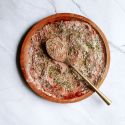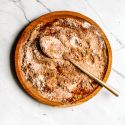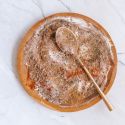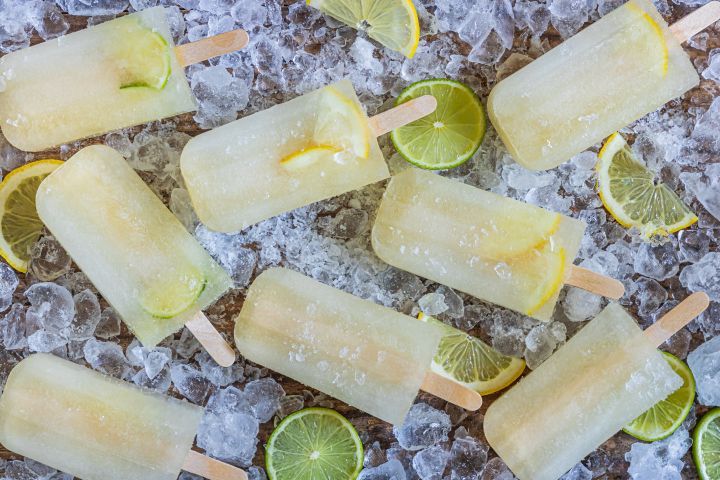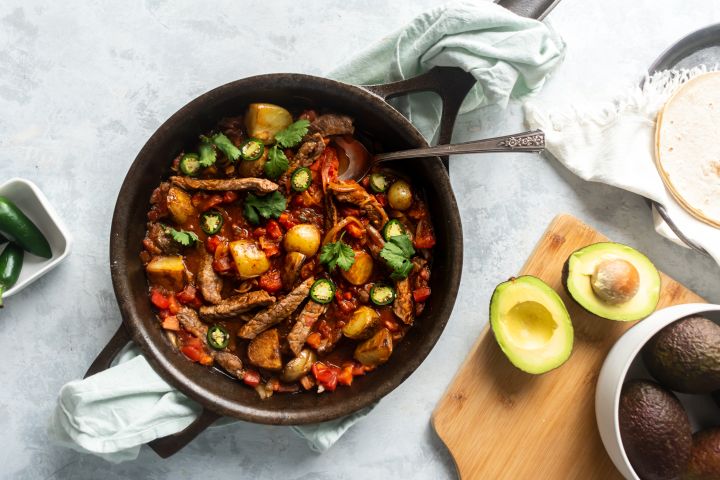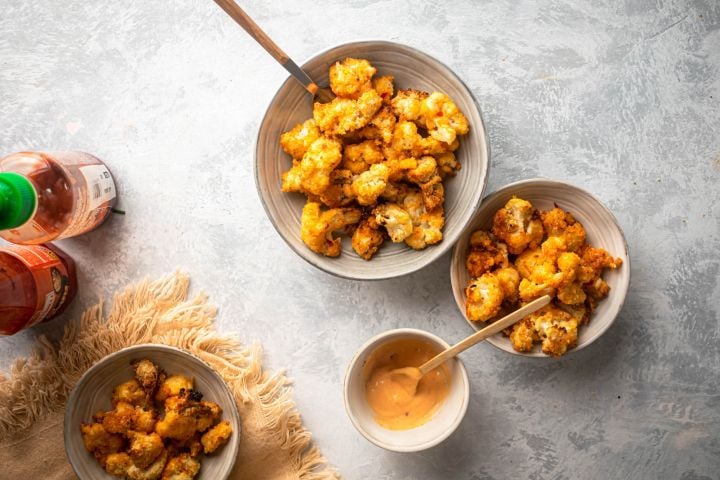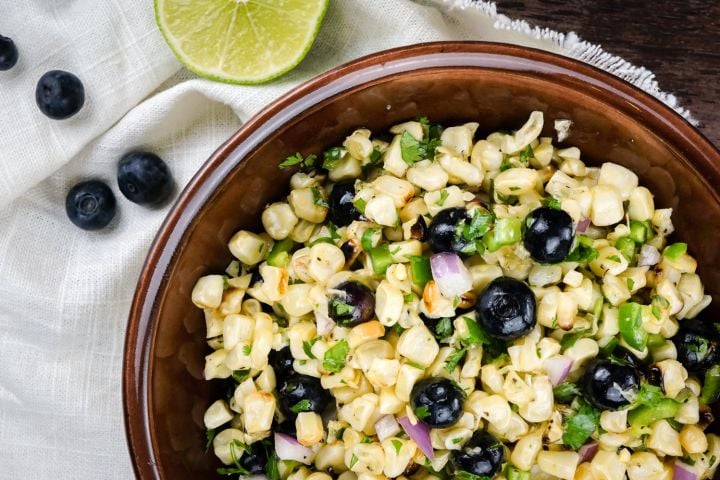How To Make Lemon Pepper Seasoning
Learn how to make the best lemon pepper seasoning at home with just 5 ingredients you likely already have on hand.
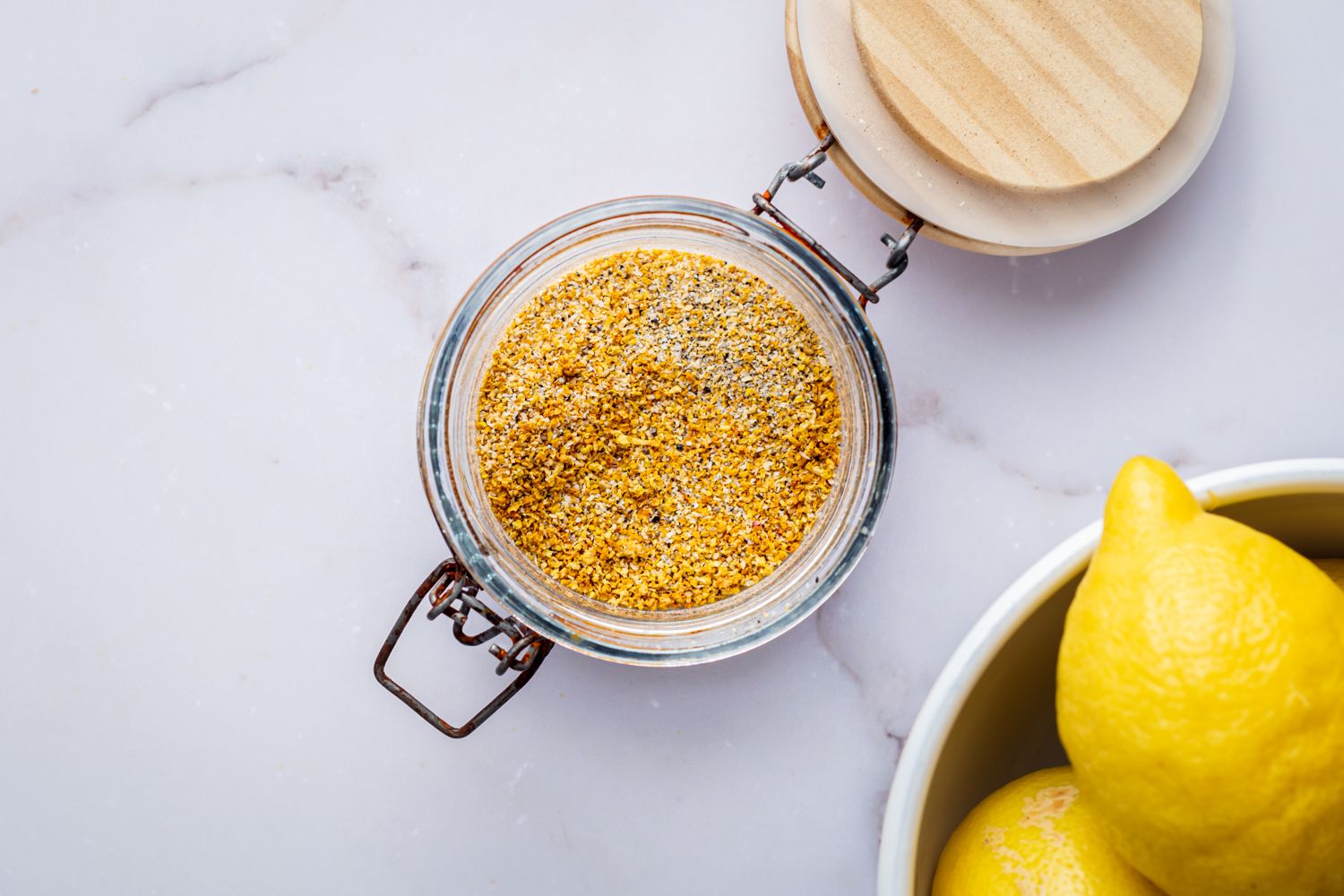
While I am a huge fan of shortcuts in the kitchen, using store-bought lemon pepper seasoning instead of homemade isn’t a shortcut I stand behind. Most store-bought options just don’t taste good. They are too salty, have an artificial lemon flavor, or are packed with sugar.
That’s why I always recommend taking some time to make a big batch of homemade lemon pepper seasoning. It is surprisingly easy to make this popular spice blend at home and it just tastes so much better. No fake lemon flavor, no salt bomb - just delicious lemony goodness. Plus it will last for up to a year, so you’re only putting in the work once.
Are you convinced yet?
If not, let’s talk about all the ways you can use this zest seasoning. It makes amazing chicken, salmon, chicken wings, and pork. It also adds a punch of flavor to roasted veggies, salads, sandwiches, and dips. It can also instantly season rice, beans, and soups. This stuff is magic.
Looking to add more homemade spice blends to your spice cabinet? Try making Italian Seasoning, Taco Seasoning, Blackening Seasoning, or Curry.

What is lemon pepper seasoning made of?
- Lemon zest: Dried lemon zest is the key ingredient and adds all the zesty, tangy flavor. Lime zest would also work.
- Black pepper: Ideally you want to use freshly ground black pepper for the best flavor.
- Kosher salt: Kosher salt or sea salt works best. For a salt-free spice blend, leave this out.
- Garlic powder: Use garlic powder or dehydrated garlic if you prefer more texture. This can be left out if you prefer.
- Onion powder: Use garlic powder or dehydrated onion flakes if you prefer more texture. This can be left out if you prefer.
How to dry lemon zest?
The best way to dry out lemon zest to make homemade lemon pepper is to bake it at a very low temperature in the oven. Once you have zested the lemon, place it on a parchment paper and bake it for 2-3 hours until it is nice and dry.
This process can be done with a dehydrator as well. You can even dry the lemon zest in a warm, sunny room but it can take a couple of days.
Why homemade lemon pepper is better!
The flavor alone should be enough to convince you to make this spice blend at home, but in case you need another reason, let’s compare the ingredients in a popular grocery store lemon pepper seasoning with ours.
- Popular store-bought lemon pepper #1 (no actual lemon!): salt, pepper, citric acid, sugar, garlic calcium stearate silicon dioxide, calcium silicate, celery seeds, lemon oil, Yellow no 5 Lake.
- More natural store-bought lemon pepper #2 (the first ingredient is sugar!): Cane sugar, sea salt, black pepper, dehydrated garlic, dehydrated onion, citric acid, rice concentrate, lemon peel, parsley, turmeric, lemon oil, sunflower oil
- Homemade: real lemons, black pepper, salt, garlic powder, onion powder
Making it at home also gives you control over the flavor. Make it less spicy by using less black pepper. Make it extra garlicky if you like. Make a salt-free version for low-sodium diets. You get to control the taste.
Ways to Use Lemon Pepper
Lemon pepper can be used in so many different ways and works in any dish where you want to add a punch of lemon and black pepper. Here are some favorites:
- Use it to season chicken breasts, thighs, and homemade rotisserie chicken.
- Coat your favorite grilled meats with olive oil and lemon pepper.
- Make lemon pepper chicken wings, everyone will love them!
- Use it for seafood including shrimp, salmon, and white fish.
- Add it to roasted vegetables for extra flavor.
- Use it to make homemade salad dressings and dips.
- Use it to season pasta salad and green salads.
- Brighten up soups and stews with a kick of lemon pepper.
- Add it to popcorn and homemade chips.
- Make a delicious avocado toast.
- Make a sauce or marinade by combing the lemon pepper seasoning with olive oil, mayonnaise, sour cream, or yogurt.
- Make homemade compound butter for crust bread, steak, or roasted turkey.

Customize Your Seasoning Blend
Many spices and dried herbs pair well with the simple flavors in this lemon pepper spice blend. Feel free to get creative and mix things up.
- Red pepper flakes
- Dried Thyme
- Dried Parsley
- Dried basil
- Dried dill
- Dehydrated garlic
- Dehydrated onion
- Turmeric
- Ginger
- Coriander
Our Favorite Recipes with Lemon Pepper Seasoning
Here are some of our favorite recipes using this homemade lemon pepper seasoning mix.
Frequently Asked Questions
Here are the most common questions about this recipe.
How long does homemade lemon pepper last?
When stored in an airtight container, homemade lemon pepper can last up to one year. The most important thing is to make sure it stays dry and that the lemon is fully dehydrated without any moisture.
Can lemon juice and pepper be used instead of the lemon seasoning?
Although the flavor profile is the same, you will get a different result using lemon juice since the flavor isn't as concentrated as in lemon pepper seasoning and lemon juice can affect the texture of what you are cooking.
What are the best containers for storing homemade spice mixes?
Small glass jars with airtight lids are the best option for storing homemade spice blends.
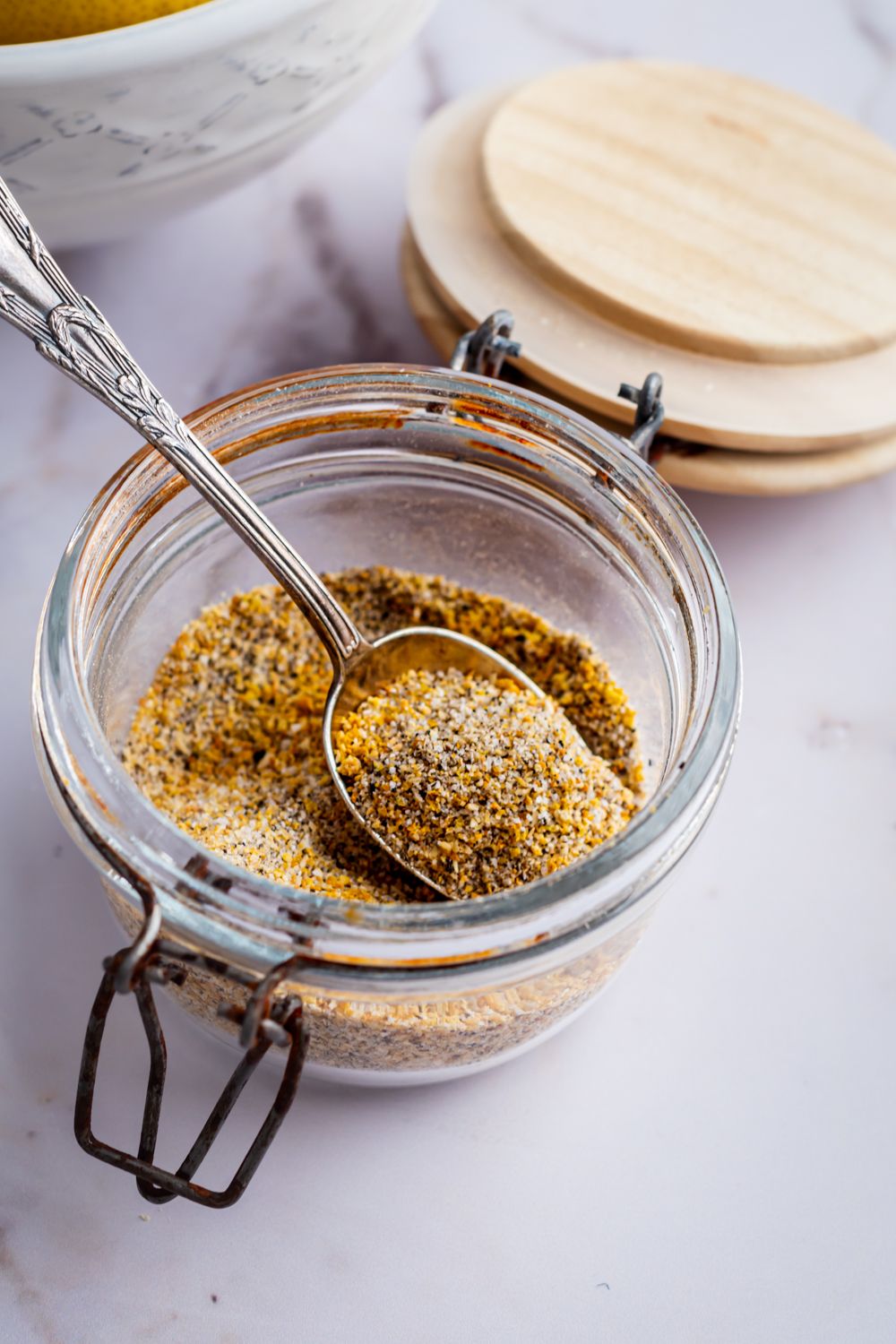
How To Make Lemon Pepper Seasoning
- Download
- Send to your inbox
Ingredients
-
4 lemons (medium or large)
-
2 tbsp black pepper (coarsely ground, adjust to taste)
-
1 tbsp kosher salt (more to taste)
-
2 tsp garlic powder
-
1 tsp onion powder
Instructions
(Hide Media)Switch to prevent your screen from going dark.
* Percent Daily Values are based on a 2,000 calorie diet. Your daily values may be higher or lower depending on your calorie needs.
The Nutritional Values provided are estimates only and may vary based on the preparation method.

Get delicious, healthy recipes delivered each week right to your inbox.

Snap a picture and show us what you made on Instagram or Facebook.
Tag us using @SlenderKitchen or #slenderkitchen.
